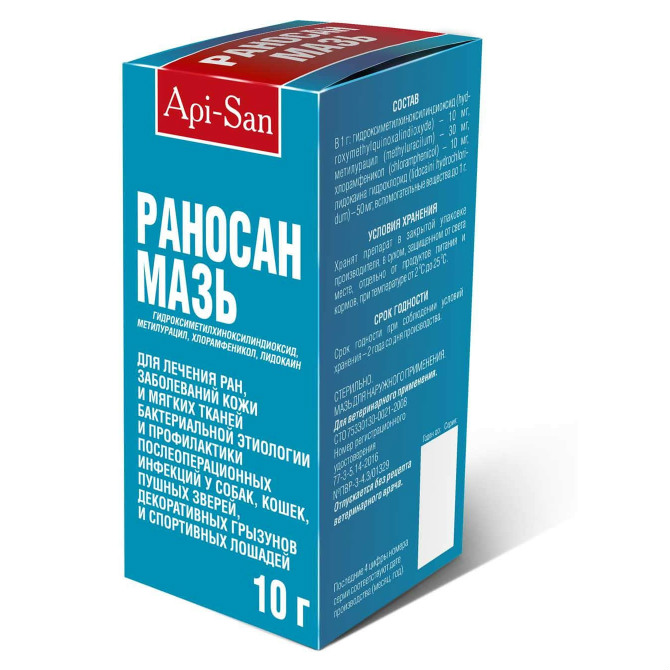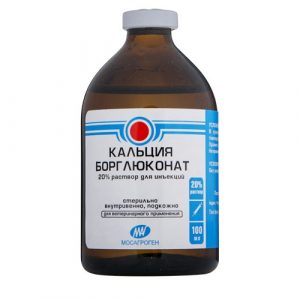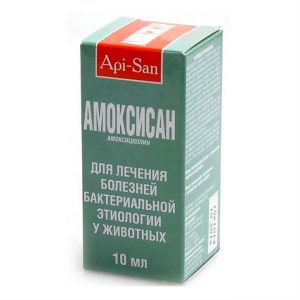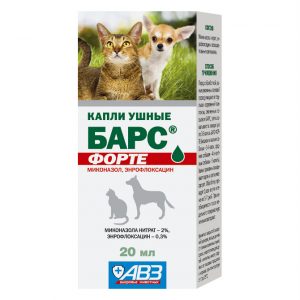Description
Pharmacological action
Ranosan ointment has a wide spectrum of antimicrobial action, stimulates reparative processes in tissues, and adsorbs wound exudate.
Chloramphenicol, which is part of the drug, has a bactericidal and bacteriostatic effect on most gram-positive and gram-negative microorganisms that cause infections of the skin and soft tissues, including Streptococcus spp., Haemophilus spp., Clostridum spp., Fusobacterium spp.
Methyluracil and dioxidine are effective in infections caused by a vulgar protein, Pseudomonas aeruginosa, Salmonella, Staphylococcus, Streptococcus, pathogenic anaerobes, including pathogens of gas gangrene. Act on strains of bacteria resistant to other chemotherapeutic drugs.
Lidocaine has a local anesthetic effect, the mechanism of which is based on the reduction or complete suppression of the excitability of sensitive nerve endings and inhibition of the conduction of a nerve impulse along nerve fibers.
Zinc oxide has a drying and adsorbing effect.
With external use of the drug, the active components are practically not absorbed and do not accumulate in the organs and tissues of the animal.
Ranosan ointment, according to the degree of exposure to the body, belongs to low-hazard substances (hazard class 4 according to GOST 12.1.007-76), at the recommended doses it does not have a resorptive-toxic and skin-irritating effect.
Indications
Ranosan ointment is used externally for dogs, cats, fur animals, decorative rodents and sport horses to treat surgical and traumatic origin of wounds, burns, pressure sores, frostbite, inflammatory diseases of the skin and soft tissues, as well as for the prevention of postoperative infections (after castration, relief of tails and ears, suturing).
Contraindications
Contraindication to use is individual intolerance to animal components of the drug (including a history of). The drug is not intended for use by productive animals.
Special instructions
Avoid skipping the next dose of the drug, as this can lead to a decrease in therapeutic effectiveness. If one dose is missed, the use of the drug is resumed, in the same dose according to the same scheme.
Composition
Hydroxymethylquinoxylindioxide – 10 mg / g, methyluracil – 30 mg / g, chloramphenicol – 10 mg / g, lidocaine hydrochloride – 50 mg / g, excipients.
Dosage and administration
Ranosan ointment is applied to animals externally once a day until complete healing of the affected surface, but not more than 14 days. Before using the drug, if necessary, the affected surface is treated: the hair is cut out, the wound is freed from mechanical impurities, crusts, scabs, washed with antiseptic solutions.
Ranosan ointment is applied in a thin layer on the affected surface with a spatula, glass stick or cotton-gauze swab, evenly distributing from the periphery to the center of the affected area, with the capture of border healthy skin up to 1 cm. Gauze napkins with ointment applied to them are applied to open wounds and fixed with a bandage, ointment is applied in cavity wounds by drainage.
Side effects
When using Ranosan ointment in accordance with this instruction, side effects are usually not observed. With increased individual sensitivity of the animal to the components of the drug and the appearance of allergic reactions, its use is stopped and, if necessary, desensitizing therapy is carried out.
Storage conditions
In the manufacturer s sealed packaging, separately from food and feed, in a dry, dark place, at a temperature of 2 ° C to 25 ° C. The drug should be stored out of the reach of children and animals.
Shelf life
2 years.
Active ingredient
Hydroxymethylquinoxylindioxide, methyluracil, chloramphenicol, lidocaine
dosage form
ointment




